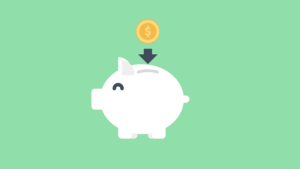Essential Guide to Securing Your First Mortgage
Applying for your first mortgage can feel like stepping into a labyrinth. With so much at stake, it’s crucial to arm yourself with as much information as possible. This guide will walk you through every step, making the complex process of securing your first mortgage a bit simpler.
Understanding Mortgage Basics
What is a mortgage?
A mortgage is a loan used to purchase property. The property itself serves as collateral for the loan, which means the lender can repossess it if you fail to make payments. Mortgages typically span 25 to 30 years, and repayments are made monthly.
Types of Mortgages
Mortgages come in various forms, and it’s essential to understand your options. The main types include:
- Fixed-rate mortgages: These have a constant interest rate for the loan’s duration, providing stability in monthly payments.
- Variable-rate mortgages: Interest rates can change, often in response to the Bank of England’s base rate, which can affect your monthly payments.
- Help to Buy mortgages: Government schemes to help first-time buyers purchase homes with a smaller deposit.
- Guarantor mortgages: These involve a family member or friend who guarantees your loan, which can be beneficial if your credit score isn’t strong.
- Interest-only mortgages: You pay only the interest during the mortgage term and repay the principal at the end.
Financial Preparation

Saving for a Deposit
The size of your deposit significantly affects your mortgage options. Typically, a deposit of at least 5-10% of the property value is required. The larger your deposit, the better the mortgage terms you can secure. For instance, a higher deposit lowers the loan-to-value ratio (LTV), which can reduce interest rates and increase your chances of approval.
Improving Your Credit Score
Your credit score is a critical factor in securing a mortgage. Lenders use it to assess your ability to repay the loan. To improve your credit score:
- Pay all your bills on time.
- Reduce your debt.
- Avoid applying for new credit shortly before applying for a mortgage.
- Check your credit report for errors and correct them.
Understanding Your Budget
It’s vital to know how much you can afford to borrow. Use mortgage calculators to estimate your monthly payments and ensure they fit within your budget. Remember to factor in other costs like property taxes, insurance, and maintenance.
Application Process
Required Documents
When applying for a mortgage, you’ll need to provide various documents to prove your identity, income, and financial stability. Commonly required documents include:
- Photo ID (passport or driving licence)
- Bank statements (last 3-6 months)
- Payslips or proof of income
- Proof of address (utility bills)
- Tax returns (if self-employed)
Choosing the Right Lender
Compare offers from different lenders to find the best mortgage terms. Consider factors like interest rates, fees, and the lender’s reputation. Using a mortgage broker can also help you navigate your options and find the best deal.
Steps in the Application
- Pre-approval: Get pre-approved to understand how much you can borrow and show sellers you’re a serious buyer.
- Full application: Submit your detailed application along with the required documents.
- Valuation: The lender will assess the property to ensure it’s worth the loan amount.
- Underwriting: The lender reviews your application in detail before making a final decision.
- Offer: If approved, you’ll receive a mortgage offer outlining the terms and conditions.
Post-Approval Steps

Legal Considerations
Once your mortgage is approved, you’ll need a solicitor or conveyancer to handle the legal aspects of the purchase. They will conduct searches, handle contracts, and ensure the property’s legal status is clear. A conveyancer ensures that there are no legal issues with the property that could cause problems later on.
Insurance Requirements
You’ll need buildings insurance in place by the time you complete your purchase. This insurance protects against damage to the structure of your new home. Many lenders also recommend contents insurance and life insurance to cover your assets and loved ones.
Finalising Your Purchase
After exchanging contracts, you’ll pay your deposit and agree on a completion date. On completion day, the property ownership transfers to you, and you receive the keys to your new home. Be prepared for your first mortgage payment, which may include additional interest for the days between completion and the end of the month.
Practical Tips and Considerations
Evaluating Mortgage Deals
Mortgage deals come with various fees and charges beyond just interest rates. Pay attention to arrangement fees, valuation fees, and early repayment charges. Sometimes, a mortgage with a lower interest rate might have higher fees, making it more expensive in the long run.
Government Schemes and Support
There are several government schemes aimed at helping first-time buyers, such as Help to Buy, Shared Ownership, and Right to Buy. These can be beneficial if you have a smaller deposit or need additional financial support to purchase your home.
Long-term Financial Planning
A mortgage is a long-term commitment, often spanning decades. Ensure that you are not overstretching your finances. Consider potential future changes in your circumstances, such as starting a family or changes in employment. It’s wise to have a financial buffer to cover unexpected expenses.
Understanding Mortgage Terms
Ensure you fully understand the terms of your mortgage agreement. Terms like APR (Annual Percentage Rate), fixed-rate period, and early repayment charges can significantly impact your financial planning. Don’t hesitate to ask your lender or broker to explain anything that’s unclear.
Conclusion
Securing your first mortgage is a significant milestone, marking the start of homeownership. While the process can seem daunting, careful preparation and understanding each step can make it manageable. Remember, the key is to stay informed and organised. Understanding the intricacies of mortgages and financial planning is the cornerstone of securing a stable future in homeownership. By following this guide, you’ll be well-equipped to navigate your way to owning your first home.
This journey requires patience, diligence, and a willingness to seek out the best advice and support. With the right approach, you can turn the dream of owning your first home into a reality.
ARE YOU READY TO START INVESTING?
Subscribe to our mailing list now for exclusive deals, investment guides and the latest information from the property market.







